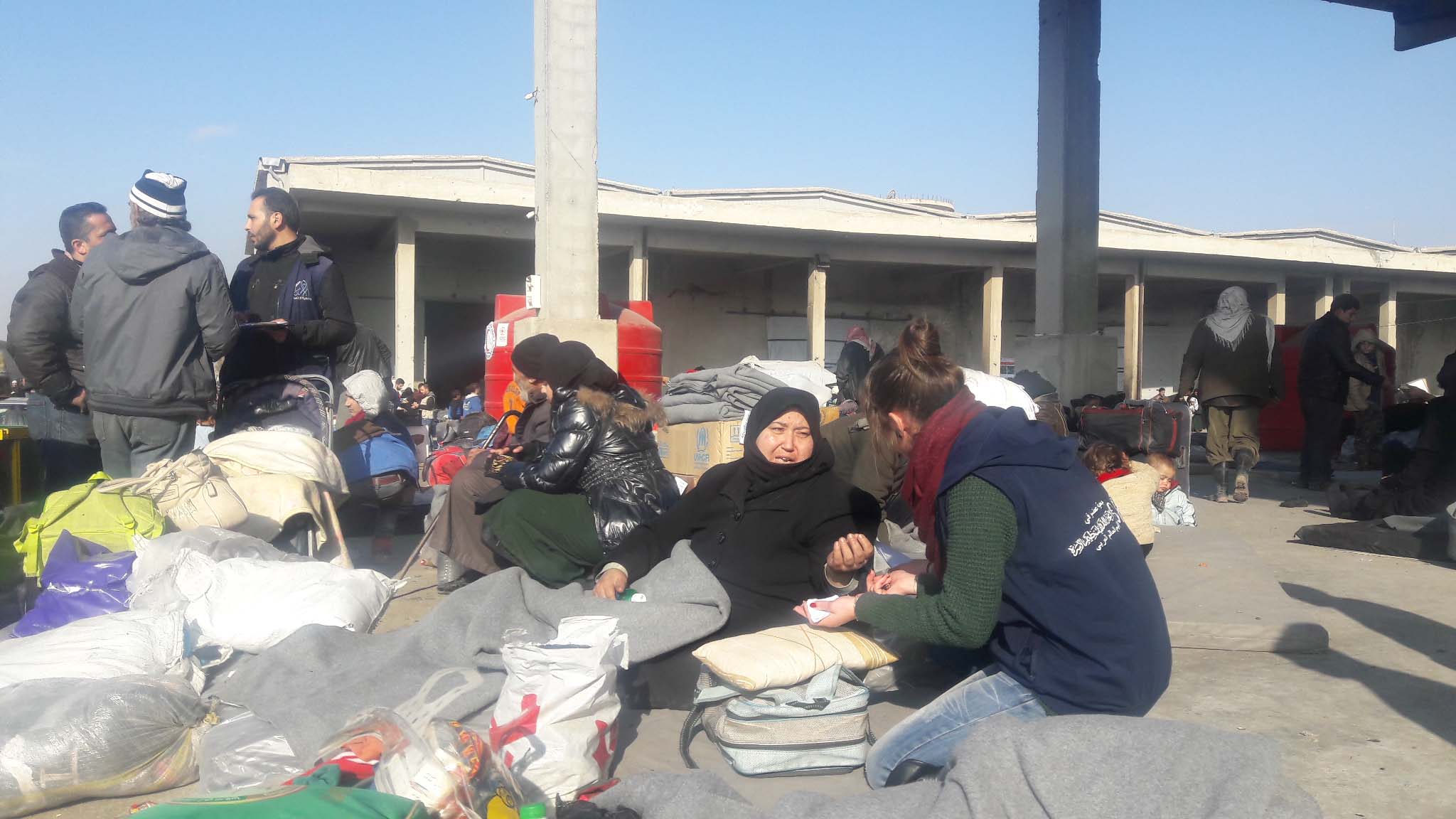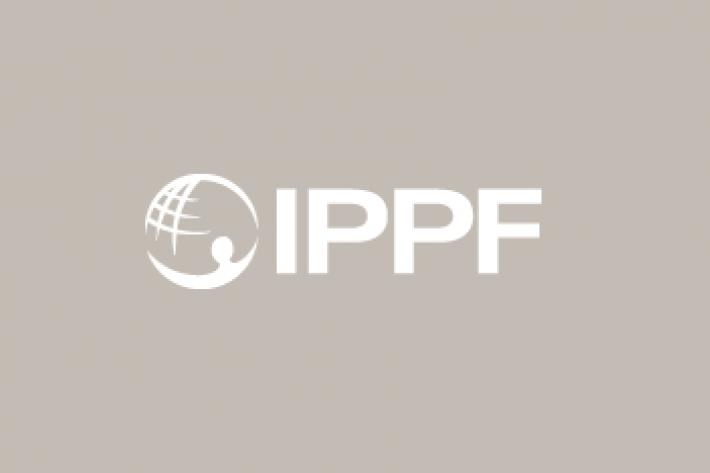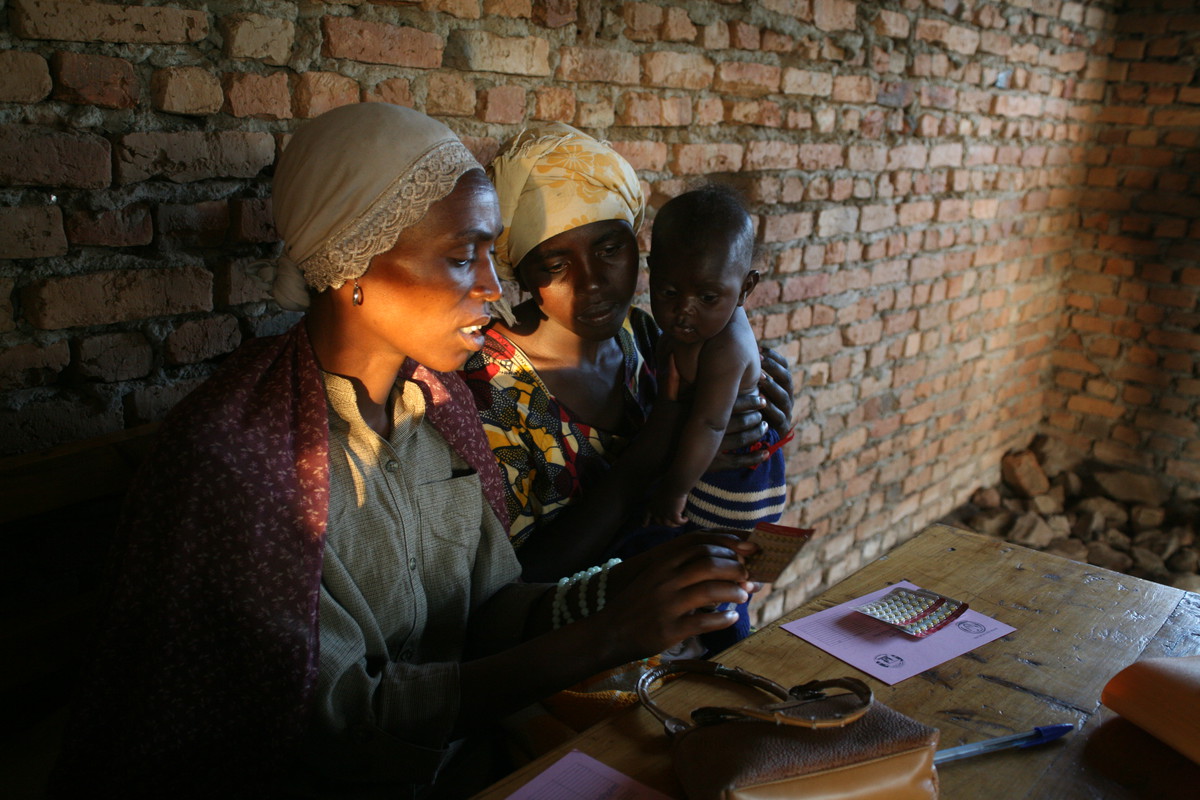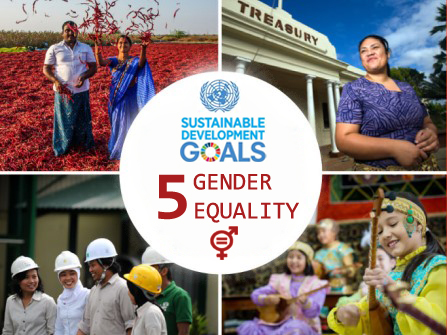
Spotlight
A selection of news from across the Federation

IPPF Statement on the 68th session of the Commission on the Status of Women (CSW)
IPPF welcomes the agreed conclusions of the 68th session of the Commission on the Status of Women (CSW), on the theme of “Accelerating the achievement of gender equality and the empowerment of all women and girls by addressing poverty and strengthening institutions and financing with a gender perspective”. IPPF actively engaged in the process by providing technical inputs to Member States, raising awareness about the interlinkages between SRHR, poverty, gender equality and the empowerment and human rights of all women and girls.
Filter our news by:


| 16 December 2016
Plea for Aleppo
My Name is Dr Lama Mouakea. I am the Executive Director for the Syrian Family Planning Association. We are now in the fifth year since the start of unrest in Syria, the situation continues to worsen. With half million people being killed and more than ten million having fled their homes, the conflict has now escalated, violently affecting the people in Aleppo, Syria’s largest city. We still are in Aleppo. The situation is difficult. We are struggling to survive. People are coming here because they are not safe. Thousands have left East Aleppo in fear. It is cold. People walk long distances. There is so much crowding and for my staff the hours are very long. There are too many people. Everywhere is crowded and this limits where we can find spaces to provide our services. The security situation in the city means that we are trying to deliver services and see as many people as we can. We know that who we treat today we may not see again. We are providing the highest number of services from mobile clinics, to contraceptive supplies, to essential medicines including vitamins. We have medical teams and volunteers providing sexual and reproductive health services, psychosocial and paediatric through a range of mobile clinics and mobile teams so we can reach people. The risks for women and girls from sexual violence is high. We have seen many cases in our psychosocial support of violence that this kind of displacement exposes them to. We provide tailored support to the survivors of sexual violence, which has increased enormously during the war. There isn't enough services for the people. The demand is high and we need more assistance. With such high numbers and suffering, our internally displaced need urgent help. My staff are also suffering. We cannot keep up and want to survive. We won't leave because our place is here to help our people. I can only hope that the world can hear me. Please consider the Syrian people and what we are going through. We need money to give hope to people and help them survive and save lives. Support IPPF's work in Aleppo DR LAMA MOUAKEA | Executive Director, the Syrian Family Planning Association Mrs. Lama Mouakea has been the Executive Director of the Syrian Family Planning Association (SFPA) for the last 19 years and has a long history of working with sexual and reproductive health services. Currently she is responsible for supervision of 114 staff and coordination of 600 volunteers. Under her leadership the SFPA has played a major role in responding to the emergency situation in Syria, providing sexual and reproductive health services to people who are internally displaced due to the on-going conflict, with a focus on mother and child care and nutrition, psychosocial support, first aid and training of health personnel in the provision of clinical management for rape survivors and coverage of the minimum initial service package among a lot of other things.

| 28 November 2016
IPPF joins Durex on World AIDS Day to detail the risks of unprotected sex
“Open Umbrella with Raindrops” emoji revealed as the people’s choice following a global poll* in response to Unicode’s refusal to create an official Condom Emoji. To mark World AIDS Day Durex calls for people to use and share the “Umbrella with Raindrops” emoji to help raise awareness of the risks associated with unprotected sex More than 75% of 16-35 year olds surveyed1 use emojis to discuss sex, with 9 out of 10 claiming that a safe sex emoji would help them to talk more openly about safe sex Almost 50% of 16-35 year olds think that HIV is not something that could ever affect them** despite the fact that every 30 seconds a young person is infected with the virus*** As part of Durex’s ongoing #CondomEmoji campaign, the World’s leading sexual wellbeing brand has today announced “Umbrella with Raindrops” as the overwhelmingly preferred choice in a global poll* to name the unofficial safe sex emoji. To mark World AIDS Day on December 1st, Durex is calling for people across the globe to use and share the emoji in order to raise awareness of the risks associated with unprotected sex and to demonstrate to Unicode the need for an official #CondomEmoji to be approved and appear on every smartphone. The campaign was launched following the shocking revelation that almost half of 16-35 year olds surveyed felt that HIV is not something that could ever affect them despite the reality that every 30 seconds a young person is infected with HIV***. More than 60% of young people surveyed* admitted to being uncomfortable discussing safe sex, with 72% of respondants admitting they found it easier to express emotions using emojis and more than three quarters admitted that they used emojis to discuss sex and relationships. When questioned 9 out of 10 agreed that an official #CondomEmoji would be something that would help them to talk more openly about safe sex. Durex Global Category Director, Volker Sydow, said: “At Durex we believe that for this World AIDS Day identifying the unofficial safe sex emoji is an important step that helps to empower young people to put safe sex back on the agenda, supporting the fight to reduce the spread of HIV and AIDS. We are asking people to show their support for the cause by using this unofficial safe sex emoji and sharing the hashtag #CondomEmoji.” The campaign has also received the support of the International Planned Parenthood Association (IPPF), with Director General Tewodros Melesse adding: “Safe sex awareness continues to be an important global challenge. We support Durex’s campaign in helping make young people think about protection. On World AIDS Day we will be backing this effort to help raise awarness of the risks associated with unprotected sex.” Durex have created an online video as part of the campaign: Sources: * 3GEM research questioning 3500 people from UK, USA, Brazil, China, India and South Africa commissioned by Durex – UK, October 2016 ** Someone Like Me, VIMN & Brand Solutions Insight with Tapestry Research, 2014 *** UNAIDS. Global Report 2010, Core Slides, Slide 11 About Durex Durex® is the #1 sexual wellbeing brand worldwide, producing a wide range of products, including high quality condoms, intimate lubricants and personal massagers. With over 80 years of experience in the bedroom, Durex is dedicated to inspiring lovers to love sex safely. That is why Durex will never stop innovating with new products that enhance the sexual experience, helping couples get closer and go further together. For more information, go to www.Durex.com. About RB* RB* is the world’s leading consumer health and hygiene company. The company has operations in over 60 countries, with headquarters in London, Dubai and Amsterdam, and sales in most countries across the globe. The company employs approximately c. 37,000 people worldwide. Inspired by a purpose to deliver innovative solutions for healthier lives and happier homes, RB is in the top 20 companies listed on the London Stock Exchange. We are the global No 1or No 2 in the majority of our fast-growing categories, driven by an exceptional focus on innovation. Our health, hygiene and home portfolio is led by our global Powerbrands including Nurofen, Strepsils Gaviscon, Mucinex, Durex, Scholl, Clearasil, Lysol, Dettol, Veet, Harpic, Cillit Bang, Mortein, Finish, Vanish, Calgon, Air Wick, Woolite and French’s. Our Powerbrands represent 80% of net revenue. RB is redefining the world of consumer health and hygiene. Our people and unique culture are at the heart of our success. We have a drive for achievement and a passion to outperform wherever we focus, including sustainability where we are targeting a 1/3 reduction in water impact, 1/3 reduction in carbon and 1/3 of net revenue from more sustainable products. We are proud to be Save the Children’s largest global partner, with a new vision to radically reduce one the world’s largest killer of under 5s, diarrhoea. For more information visit www.rb.com. *RB is the trading name of Reckitt Benckiser group of companies

| 09 November 2016
Director General responds to Trump victory US presidential election
Tewodros Melesse, IPPF Director General, has responded to the victory of Donald Trump in the US presidential election. Mr Melesse said: “IPPF fights for the rights of women and girls, everywhere. As a Federation we will stand together and raise our voices even louder. We support our friends at Planned Parenthood in their determination to offer health care to millions of American women and ensure that access to abortion remains safe and legal. “The US is a global leader on family planning and the biggest donor in the world, through the work of USAID. That is a proud record, stretching back 55 years. Any dollar cut from US international family planning and reproductive health programs affects the lives of some of the poorest women and children around the world.” “IPPF calls on President-elect Donald Trump to respect the fight for women’s rights and reproductive health and rights, nationally and globally.” “At one point in the campaign, President-elect Trump said that no-one had more respect for women than him. We very much hope that he will honor that by upholding a woman's right to safe and legal abortion and through his support for America’s international programs which aim to give millions of women around the world a better life.”

| 20 October 2016
Urgent appeal: Typhoon Haima strikes the Philippines
Another dangerous tropical cyclone has emerged in the Pacific Ocean. The Typhoon Haima hit the northern part of the Philippines and considering the strength of the storm this cyclone will have had a high humanitarian impact. Please make a donation now. As of reporting time, a total of 18,157 families (90,589 individuals) were evacuated. Initial reports from the Cordillera Region show that 113 houses were damaged. With the strength and extent of the destruction, it is most likely that health and birthing facilities and schools were severely affected. In the rush to provide shelter and food in a crisis, the health and protection needs of pregnant women and young families are often overlooked. When the Typhoon struck approximately one in five women will have been pregnant. Without access to the right health care, we expect 20 per cent of them will incur complications during the delivery. Your donation will help us save lives. Having established partnerships in 170 countries, IPPF is one of the first responders when a crisis occurs. Helping the hardest-to-reach areas, particularly women and girls, we are often the only health providers there. The International Planned Parenthood Federation, working through the Family Planning Organization of the Philippines (FPOP), is responding to this crisis. We have worked together since 1969 and in recent years we have saved countless lives following Typhoon Haikui, Bopha, Trami and Haiyan. FPOP is working closely with the local government and international relief agencies to ensure that no women or her family is left behind and put at risk during this crisis. Nandy Senoc, FPOP’s Executive Director said “While we don’t yet know the full extent to the devastation, we are mobilizing our health workers and volunteers, to provide lifesaving services. As a volunteer organization, we are there before, during and after the crisis strikes. We are ready to respond now. For many women and girls in these affected areas, access to our essential health and protection services could mean the difference between life and death. I would like to thank you for supporting IPPF’s work and for standing by women and girls during difficult times like this. Your generosity today will help us support more women and girls as this crisis unfolds." With your support we reach over 2.2 million clients in crisis settings annually in all corners of the world.

| 20 September 2016
Campaign to tackle global contraceptive crisis
A petition has been launched calling for the United Nations Secretary General Ban Ki-Moon to tackle a looming global contraceptive crisis which threatens to put the health and well-being of thousands of women at risk. The International Planned Parenthood Federation (IPPF), in collaboration with the Reproductive Health Services Coalition (RHSC), PAI and Marie Stopes International (MSI), has launched a digital advertising campaign in the online version of Guardian Newspaper today calling for urgent action to be taken. .@Bankimoon_amdg tell world leaders to keep their promises to women. https://t.co/nhY2Iu8pUs #FPCrisis #WCD2016 pic.twitter.com/BXQOK1PaAg — PAI (@pai_org) September 19, 2016 The availability of contraceptives relies largely on funding from donor countries. As donors are falling short on their promises, it is leading to a crisis in getting contraceptives into the countries that need them most. UNFPA is the only agency equipped to provide sexual and reproductive health care to women and girls in conflicts and emergencies and UNFPA Supplies provides approximately 40% of donated commodities to low and middle income countries. Indications show that there is a funding gap of around $273 billion between now and 2020. Projections show that by 2020, 397 million women will be using modern methods of contraception throughout more than 130 developing countries. If the funding gap is not closed, the needs of these women will not be met. At the same time, most developing country governments have not made sufficient investments in contraceptives to fill the gap and meet the needs of women. Access to contraception is transformative for women and communities. It is linked to greater gender equality, educational attainment and even economic development. Every $1 invested in sexual and reproductive health and unmet need for family planning has the potential to save $120 in other areas. The Sustainable Development Goals (SDGs) cannot be achieved without sustained investment in reproductive health supplies, as a reduction in unintended pregnancy is critical to health, wealth and wellbeing. And, a failure to meet the contraceptive needs of women has the potential to derail progress already made. The petition calls for the Ban Ki-Moon to highlight the centrality of contraceptives to achieving the sustainable development goals. It calls for global leaders and donors must prioritise funding for contraceptives and the systems that deliver them on the global agenda. Please sign the petition. The home page for the campaign is here.

| 15 August 2016
IPPF joins forces to call for gender equality
The International Planned Parenthood Federation (IPPF) has joined forces with Keira Knightley, Annie Lennox and a string of other celebrities and humanitarian organisations to call on the new International Development Secretary to lead the global fight for gender equality. About 40 individuals and charities have written to Priti Patel urging her to show strong leadership, adding that progress towards achieving women’s rights is too slow and under-funded. . The letter says it’s now time ‘to tackle the unacceptable discrimination and injustices women and girls continue to face on a daily basis’. Today @marthalanefox, @lovegwendoline + 38 more ask @patel4witham to invest in #fearless grassroots women’s groups: https://t.co/yDMWmL4YDd — ActionAid UK (@ActionAidUK) 12 August 2016 The issues facing women and girls, it says, range from the gender pay gap to online abuse, sexual violence in conflict, and girls’ lack of access to education - gender inequality continues to be a major barrier and affects women and girls everywhere. Statistics show that one in three women will face violence in their lifetime, nearly two thirds of the world’s illiterate adults are women, and that fewer than four per cent of the world’s leading corporations have female CEOs. We stand with other #womensrights supporters in this letter to @patel4witham https://t.co/7h2RNNl793 #fearless pic.twitter.com/UHlXyih0Qm — Womankind Worldwide (@woman_kind) 12 August 2016 Despite the problems facing women and girls it is an area that misses out on investment. An independent report found recently that funding women's rights organisations is a "neglected" area in Dfid (the Department for International Development) spending. The letter says: “While there is no quick fix for achieving gender equality, we know that challenging social norms and prioritising women’s voice and leadership are vital. There is also broad consensus that one of the linchpins of realising long-term, transformative change for women and girls is a strong, vibrant and sustainable women’s rights movement, which remains chronically under-funded.” The letter calls for Ms Patel to invest further in grassroots organisations that support women around the world. It says: “Across the world, women’s rights organisations are at the forefront of providing services to survivors of gender-based violence; ensuring women and girls’ participation at every level; holding their national governments to account for their policies and practices. Without them it will not be possible to keep the promises of the SDGs (Sustainable Development Goals).” In July Ms Patel publicly committed to keeping the Government's promises to the world’s poor, which was included in the 2015 poverty reduction targets (the SDGs). The signatories of the letter include ActionAid UK, Annie Lennox, Anoushka Shankar,Barbara Broccoli, Care International UK, Caroline Criado-Perez, Christian Aid, Emma Thompson, Felicity Jones, FORWARD, Gwendoline Christie, Imelda Staunton, International Rescue Committee (IRC), Jane Wellesley, Jodie Whittaker, Keira Knightley, Laura Marling, Leith Clark, Livia Firth, Martha Lane Fox, Maryam D’Abo, Naomie Harris, National Alliance of Women’s Organisations (NAWO), Oxfam GB, Paloma Faith, Plan International UK, Progressio, Sarah Waters, Shami Chakrabarti, Stars Foundation, Sophie Walker, Thandie Newton, The Circle, Vanessa Redgrave, WEN Wales, White Ribbon Alliance, Widows for Peace through Democracy (WPD), Womankind Worldwide and Women’s Equality Party. A story about the letter was published in the Daily Telegraph which can be read here: www.telegraph.co.uk/news/2016/08/12/keira-knightley-and-vanessa-redgrave-call-on-priti-patel-to-lead/














